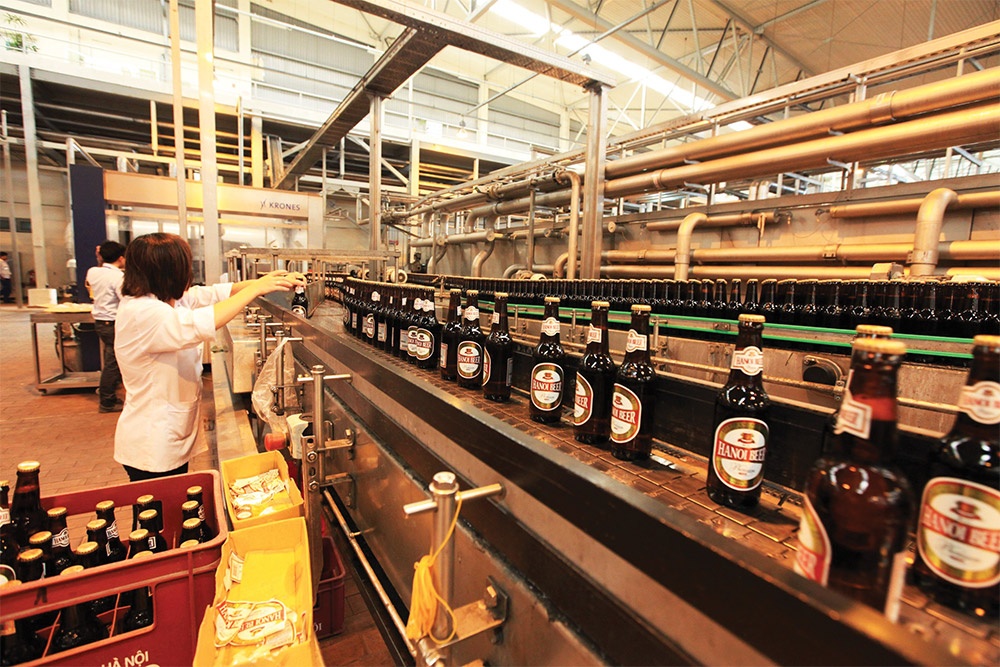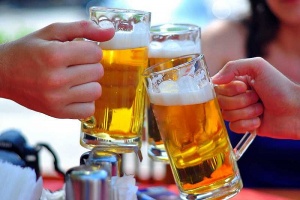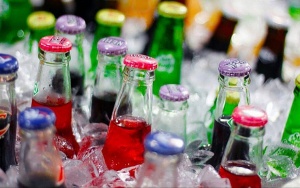Beer industry compelled to adjust to potential tax impact
 |
| Beer industry compelled to adjust to potential tax impact, photo Duc Thanh |
Last week, HEINEKEN, the world’s second-largest brewer, suspended the operations of one of its breweries in Vietnam, and announced that it had to shut down its brewery in the south-central province of Quang Nam due to plummeting sales. This brewery has the smallest capacity of six factories in the country, and the Dutch firm has not revealed a timeline for reopening it.
Before 2020, HEINEKEN Quang Nam Brewery contributed an average of VND 1-2 trillion ($41-82 million) to the provincial budget each year, making it the second-largest contributor in the locality. In the first three months of 2024, the contribution from the factory reached only VND20 billion ($8,300).
Vietnam’s beer market has seen a double-digit decline in 2023 and continues to decline by single digits to date.
A representative of HEINEKEN said, “The economic slowdown has caused numerous challenges for the entire economy, including the beer industry, which has led to a fall in consumer confidence and consumption patterns. To be able to adapt to the current situation and continue to develop with the market that is and will have many changes in the future, we have decided to optimise our production and business activities.”
Two years ago, the beverage group opened Southeast Asia’s largest brewery in the southern province of Ba Ria-Vung Tau at a cost of $400 million, after predicting that Vietnam would become a promising market for beer production.
However, Vietcap Securities predicted that the beer sector in 2024 would face a hard time as demand has not shown signs of improvement. People are tightening spending, especially on non-essential items such as beer and wine, and tighter drink-driving rules put in place several years ago have also played a part.
The trouble in the beer industry does not only affect HEINEKEN. Data from Bao Viet Securities Company (BVSC) shows that the total revenue in 2023 of the group of listed beer and wine enterprises dropped to around $2.2 billion from more than $2.8 billion in 2022, while the total profit after tax will decrease by 23 per cent.
Beer consumption growth may also slow down in 2026-2027 due to the potential rise in special consumption tax (SCT). According to a draft amendment to the law on SCT, the Ministry of Finance (MoF) intends to raise the SCT on alcoholic beverages by 15 per cent, starting from 2026.
Currently, beer is subject to a 65 per cent excise tax and alcohol to a 35-65 per cent tax. The excise tax on beer will rise to 80 per cent starting in 2026 and reach 100 per cent by 2030, according to the MoF’s plan.
To cope with slowing demand, beverage firms have to restructure. For instance, admitting that the beer market is still complex, Saigon Beer-Alcohol-Beverage Corporation (SABECO) general director Lester Tan said, “When setting growth goals, we cannot wait for the wind to calm down and the rain to stop – we must respond.”
SABECO will concentrate its resources on marketing and branding initiatives, creating brand positioning, supporting strategies for production and distribution to satisfy market demands, reorganising the distribution network, and managing product segmentation, Tan said.
The company wants to remain successful in its home market and expand into other markets. It also wishes to support research and development projects that will raise the calibre of its products and improve the effectiveness of its supply chain management. Additionally, Tan said, it will focus on e-commerce following evolving trends, increase investment and operational efficiencies, lower costs, and lessen the effects of climate change. Renewable and solar energy systems will be adopted for cost-effectiveness.
Meanwhile, Hanoi Beer Alcohol and Beverage Joint Stock Corporation (HABECO), the third-largest beer manufacturer in terms of scale, has also launched a cautious business plan in the context of challenges. Its main product sales revenue is expected to reach $270.8 million. According to HABECO’s Board of Directors, weak purchasing power, inflation risks, high operating costs, and large inventories continue to put pressure on enterprises’ production and business activities.
HABECO’s goal is to affirm its leading position in the northern market, continue to expand the market in the central and southern regions, increase brand value, and improve product and service competitiveness. The company is focusing on developing both indirect consumption channels and exploiting e-commerce to perfect its distribution model.
 | Alcohol and beer could be subject to 100 per cent special consumption tax The Ministry of Finance (MoF) has proposed increasing the special consumption tax (SCT) for alcohol and beer to 100 per cent by 2030. |
 | MoF proposes a 10 per cent special consumption tax on sugary drinks The Ministry of Finance (MoF) has maintained its view that sugary drinks should be subject to a special consumption tax (SCT) of 10 per cent in a message sent to the government regarding the draft revised SCT Law. |
What the stars mean:
★ Poor ★ ★ Promising ★★★ Good ★★★★ Very good ★★★★★ Exceptional
Related Contents
Latest News
More News
- Masan Consumer names new deputy CEO to drive foods and beverages growth (February 23, 2026 | 20:52)
- Myriad risks ahead, but ones Vietnam can confront (February 20, 2026 | 15:02)
- Vietnam making the leap into AI and semiconductors (February 20, 2026 | 09:37)
- Funding must be activated for semiconductor success (February 20, 2026 | 09:20)
- Resilience as new benchmark for smarter infrastructure (February 19, 2026 | 20:35)
- A golden time to shine within ASEAN (February 19, 2026 | 20:22)
- Vietnam’s pivotal year for advancing sustainability (February 19, 2026 | 08:44)
- Strengthening the core role of industry and trade (February 19, 2026 | 08:35)
- Future orientations for healthcare improvements (February 19, 2026 | 08:29)
- Infrastructure orientations suitable for a new chapter (February 19, 2026 | 08:15)

 Tag:
Tag:



















 Mobile Version
Mobile Version